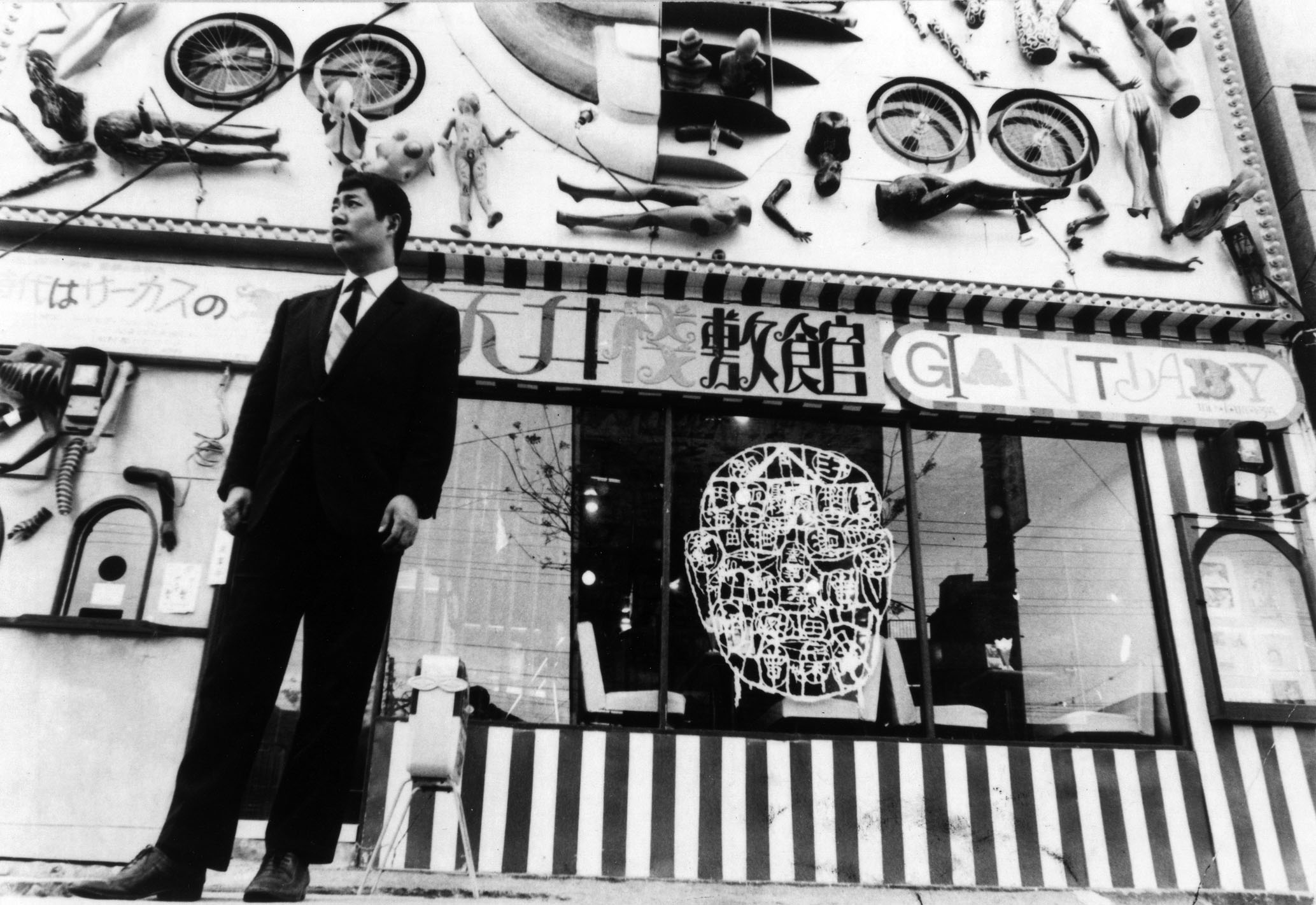Thirty years on from the death of Shuji Terayama, Japanese theater's most avant-garde provocateur continues his renaissance with a show of his films, photography and, most importantly, theater works at the Watari Museum of Contemporary Art, which follows on from the recent showing of printed ephemera at the Poster Hari's gallery in Tokyo's Shibuya district.
Shrugging convention from an early age, Terayama used his own personal form of art, theater and film to renounce social norms. His obsession with taking his own picture as a child evolved into writing poetry, and in Tokyo, when writing essays for his own brand of taishu engeki (theater for the masses), he invited photographer Daido Moriyama to photograph his troupe Tenjo Sajiki, promising to publish the images alongside his own prose. Though the photos were never used as intended, Moriyama later published them under the unspecific title "Japanese Theater." Terayama's essays meanwhile remained incomplete.
Encouraged by others, Terayama immersed himself in film and photography, spurred on by supporters who were keen to see him exhibit his work. On display at the Watari-um, his absurdist-art of unsent postcards hang next to an array of films that defy conventions. His 9-minute entry to a shorts film festival, for example, had him submit three films, each three minutes long, all to be played simultaneously.

















With your current subscription plan you can comment on stories. However, before writing your first comment, please create a display name in the Profile section of your subscriber account page.